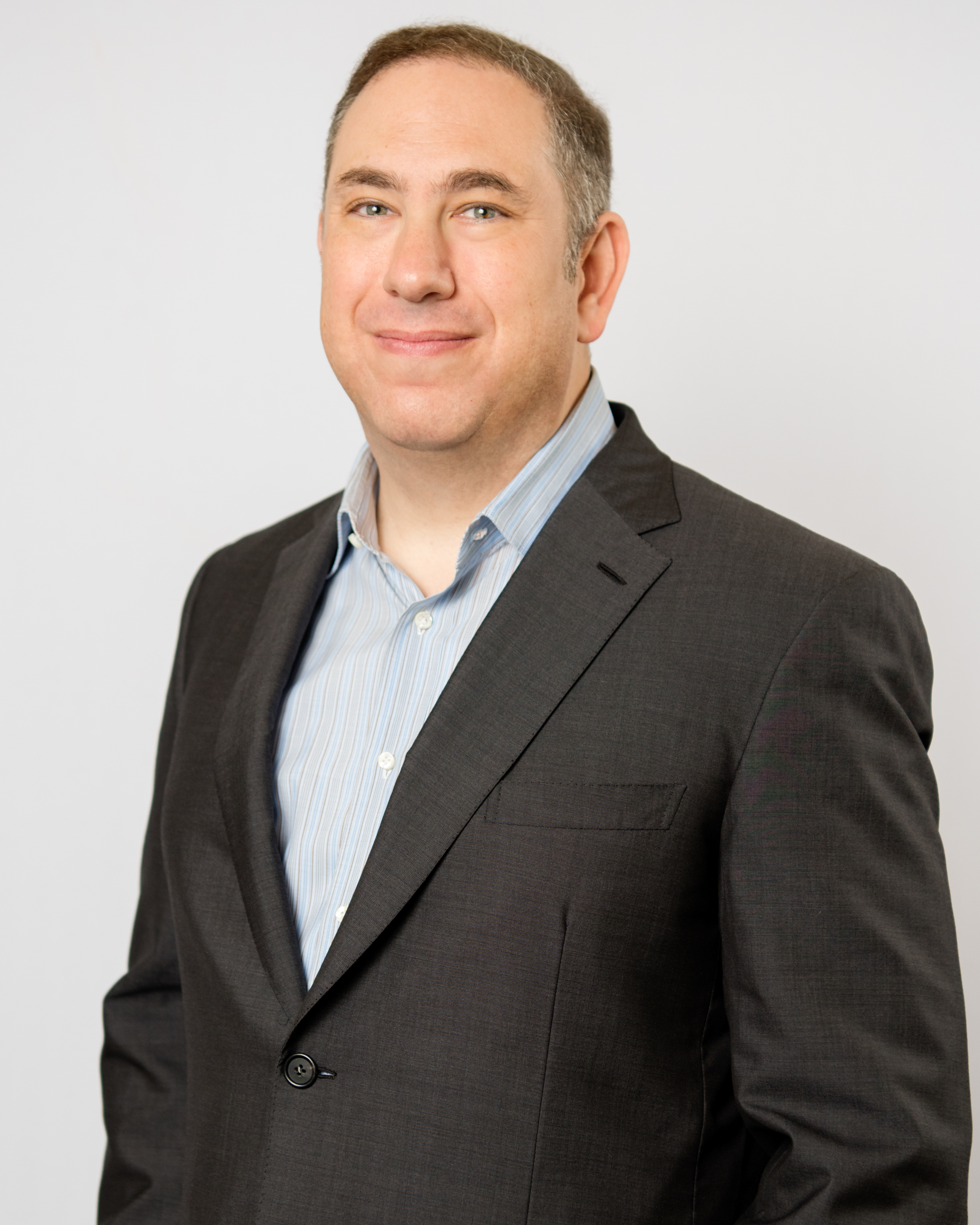Why is tech still aiming for the healthcare industry? It seems full of endless regulatory hurdles or stories of misguided founders with no knowledge of the space, running headlong into it, only to fall on their faces.
Theranos is a prime example of a founder with zero health background or understanding of the industry — and just look what happened there! The company folded not long after founder Elizabeth Holmes came under criminal investigation and was barred from operating in her own labs for carelessly handling sensitive health data and test results.
But sometimes tech figures it out. It took years for 23andMe to breakthrough FDA regulations — it’s since more than tripled its business and moved into drug discovery.
And then there’s Oscar Health, which first made a mint on Obamacare and has since ventured into Medicare. Combined with Bright, the two health insurance startups have pulled in a whopping $3 billion so far.
It’s easy to shake our fists at fool-hardy founders hoping to cash in on an industry that cannot rely on the old motto “move fast and break things.” But it doesn’t have to be the code tech lives or dies by.
So which startups have the mojo to keep at it and rise to the top? Venture capitalists often get to see a lot before deciding to invest. So we asked a few of our favorite health VC’s to share their insights.
Phin Barnes – First Round Capital

Over the years, we’ve found that no matter the industry, there’s more commonality across all of our community companies than not. Whether it’s a healthcare startup, a deep infrastructure technology company, or a consumer facing e-commerce mobile app, company building is company building — a lot of the challenges you face are the same.
There are processes that are core to building a business of any kind, such as hiring, finding office space, positioning, turning individual contributors into managers, or figuring out your family leave policy. For example, our healthcare founders will often come to us for help when they’re trying to hire a VP of Engineering, which isn’t that different from helping a DTC startup fill a similar position. You’re looking for different passions and interests, and perhaps some previous specialized experience, but ultimately it’s about attracting the best talent and setting them up for success.
At the same time, there’s, of course, a lot of nuance in every category. We help our healthcare founders address their industry-specific challenges in the following ways:
- Building a healthcare specific community. We’ve found that our focus on building a community across our portfolio companies has been critical for supporting healthcare founders. Just as e-commerce companies are looking for advice on customer acquisition channels, there are best practices for healthcare startups looking to deal with regulations or sell into healthcare financing systems. What we’ve seen at First Round is that as we’ve invested in more healthcare companies, we’re able to connect them with each other. It’s a sub-community that we’ve tried to nurture over the years. And they can lean on each other and swap tactics on everything from navigating the FDA or larger care providers to dealing with Medicare services to figuring out how to engage with clinicians and researchers directly. They can share those unique healthcare best practices with each other. We host healthcare-specific salons and roundtables for them to get together, they’re always answering each other’s questions on First Round Network (our internal, Quora-style platform). We also help companies like Modern Fertility host their own community and customer events.
-
Figuring out where to make strategic investments. Take a company like Modern Fertility. There are many different directions that they could pursue. They have to choose where they’re going to aim their firepower, so as investors, our role is to help them think through that. Should they focus on clinical research and advancing medical science, or should they invest dollars in something like customer acquisition? Our working sessions with founders like Afton and Carly are often focused on helping them define the business experiments they want to run and hypotheses they want to test. Often a healthcare founder will come to me and say something like, “I really want to run this clinical trial, I can outsource it and it’ll cost me this much, or I can hire and run it in-house and save that much, but it’s going to take three extra months.” That’s a decision that I can help walk them through, breaking down how it relates to their runway until the next capital raise and the strategic roadmap for the business. But I wouldn’t wade into the science of how to define the clinical trial’s success—just as I don’t do code reviews with technical founders. Our job is to bring out the founder’s best, and help them maximize the opportunity for the company.
-
We also brought on a regulatory expert-in-residence, Susan Stewart, as an additional resource. She’s worked with four of our healthcare companies so far in specific, targeted working sessions such as FDA processes. We also provide mentorship opportunities for the founders and employees of our portfolio companies through our Fast Track Program, so there’s additional opportunity for healthcare industry-specific guidance there.
Healthcare companies I’m excited about:
-
Modern Fertility. I led our early investment in Modern Fertility. What’s exciting to me is that they continue to walk down the path of building a leading brand in women’s healthcare. And they’re doing that by empowering the patient with access to information about her body. The beautiful thing about Modern Fertility is their original vision for value creation in the market was empowerment of patients through data, and now they’re building this brand that’s delivering on that exact promise. The clinical work they’re doing establishes trust (which is critically important in healthcare), while the larger brand and community-building work they’re doing broadens the access of this type of information. It’s this great combination of trust and accessibility that’s the beginnings of a flywheel. They have early signs of real impact for their customers, and they just raised their Series A round, it’s so great to see.
-
Sitka is another healthcare company I’ve been focused on lately. We invested in their seed round in 2018. The founding team is such a unique combination—Kelsey Mellard has incredible experience on the business side of healthcare, Sohrab Golloglyis an orthopedic surgeon, and then Shaun Lindsay is an amazing engineering leader from Google. There’s been this sort of mind-meld between the three of them, as they leverage these very different perspectives to approach the market. Their product gives primary care providers superpowers and allows them to elevate the quality of care for patients by making it more efficient for them on the back-end. It also reduces costs in the system. It’s empowering everyone in the healthcare chain, from patients and providers to payers, which really excites me. It’s early days still, but we’ve supported their efforts in hiring, product definition and sales and they’re making a ton of progress.
Matt Ocko – DCVC
 DCVC invests in companies that harness deep tech with a defensible algorithmic advantage to solve hard, real-world problems that transform a moribund industry—and healthcare is no exception
DCVC invests in companies that harness deep tech with a defensible algorithmic advantage to solve hard, real-world problems that transform a moribund industry—and healthcare is no exception
The form of Hobson’s Choice of the healthcare industry – that America can have only two of three of quality outcomes, cost efficiency for both individuals and society, and acceptance by the entrenched gatekeepers of healthcare – has to be replaced with an equation that delivers all three.
DCVC believes this is possible by giving doctors, nurses, clinicians, and the whole caregiving ecosystem cost-effective superpowers within a delivery, regulatory, and economic model acceptable to operators, pharma companies, and regulators. This “disruption from within” is a markedly different approach, and requires deeper tech with more dramatic, measurable, and cost-effective benefits, than attacking the healthcare system from the outside with expensive and futile performative gestures.
The thesis is simple: if the cost for superior, life-saving care is half to 10x less, and results are 10-100 times better, then adoption happens quickly, and hospitals and insurance companies are hard-pressed to say no to saving money while lives are saved. Some of the healthcare companies we have invested in have achieved dramatic results to help deliver “disruption from within”.
One example is Karius, which uses genomics and AI to advance infectious disease diagnostics. The company can recognize almost every pathogen mankind has ever encountered at the genomic level.
Using machine learning algorithms that allow for rapid analysis of complex genomic data, they are pioneering new testing methodologies to accurately detect and characterize infectious diseases. Instead of relying on a century-old method developed by Louis Pasteur that can take weeks for a result, the Karius gene-based blood test that can return results in a day.
This can make the difference between life and death. And Karius’ technology is backed by multiple large-scale studies, peer-reviewed publications, and a delivery and reimbursement model that satisfies both doctors and administrators in the existing framework of the healthcare system.
Another is Medical Informatics Corp, which has developed an FDA-approved software-based monitoring and analytics platform for ICU patients. This is timely as hospital systems across the country are searching for ways to use machine learning and AI to get ahead of patient condition deterioration and risk in complex care areas. Using machine learning and artificial intelligence capabilities, the “Sickbay” platform generates real-time, predictive analytics that would otherwise not be possible with traditional medical hardware to help care teams make better, faster decisions, and save lives.
The company – which has already dramatically reduced the rates of death and disabling outcomes in the hospitals where it is deployed — hopes to bring its breakthrough technology to every bedside in every hospital in the country. Medical Informatics Corp, like Karius, is endorsed by practicing doctors, has years of evidence behind it, and is rapidly deployable in hospitals without breaking their care delivery or revenue models – it saves lives at lower cost.
How’s this for a grand ambition? Recursion Pharmaceuticals is creating a map of human cellular biology. They are pursuing this using their algorithmic advantage combined with a massive and growing database, driven by a team with deep industry expertise uniting pharmacology, AI and robotics.
Along the way, they are leveraging their work to find novel treatments for disease and then partnering with the world’s most successful development companies to get them to patients as quickly as possible. The company plans to significantly increase the speed and decrease the cost of finding treatments, maybe even to the point where they can identify just the right drug for the right patient at the right time.
With multiple IND filings, at a speed and cost far better than heretofore possible, Recursion is delivering urgently needed cures within the framework of the system – but at costs and a scale where savings can be realized by both individual patients and society as a whole.
Atomwise also uses deep learning, specifically convolutional neural networks, to shorten the process of discovering new drugs. Through this process they can extract insights from millions of experimental affinity measurements and thousands of protein structures to predict the binding of small molecules to proteins. This makes it possible for chemists to pursue discovery, lead optimization and toxicity predictions with unparalleled precision and accuracy.
In so doing, the company is reducing the amount of money and time it takes find new compounds for medications. Atomwise has closed over $3 billion of total value in deals with large pharma in just 6 months, demonstrated early success in hard to treat diseases, and is scaling out to validate 10 billion potential cures – a record of progress that dwarfs any similar company in their field. Atomwise, like Recursion, doesn’t explode the existing pharma to clinic ecosystem – it just pulls huge amounts of time and cost out of it.
Through our investments in these and other companies, DCVC is empowering doctors, nurses, and hospitals, and the pharma community that provides them with essential medicines, with transformative improvements in patient outcomes and cost reductions at the same time.

Nick Naclerio – Illumina Ventures
Thanks to the availability of venture capital to fund high-risk projects, most of the biggest healthcare innovations are coming from start-ups. It’s not that big companies can’t innovate, it’s just that start-ups are taking more shots on goal. Additionally, I think that start-ups are often more willing to push the regulatory envelope and experiment with new business models.
At Illumina Ventures we invest primarily in genomics and precision health where innovators are changing the way we diagnose and treat patients. Think of DNA as the programming language for all living things and a genome as the complete code for a given organism.
Next-generation Sequencing (NGS) allows us to understand both the static code and monitor its execution in living cells. Because each of us has about 6 billion characters of DNA in each of our trillion cells, not to mention at least as many bacterial cells living in and on our bodies, genomics is the ultimate big data challenge. Many of our companies have as many data scientists as biologists.
We see plenty of startups that understand the regulatory and reimbursement challenges associated with healthcare. If your computer game crashes, no one dies. If your medical device gives the wrong answer someone might – so it’s necessary to think differently.
Another challenge in healthcare is that the consumer is rarely the one paying for the product. Just because a product costs half as much doesn’t mean anyone will buy it. It has to be proven superior in the eyes of guideline setting committees and payors.
Entrepreneurs that fail to understand these differences often run into challenges. The current FDA leadership has been extremely accommodating of new technology when there is solid clinical evidence and a clear medical benefit.
Illumina, Foundation Medicine, and Adaptive Biotechnology have all had pioneering NGS based diagnostic tests cleared recently and the FDA created a streamlined path for companies like 23andMe to offer low-risk genomic tests directly to consumers.
On the therapeutics side, we have seen the FDA clear some revolutionary new approaches including cell therapies that are customized for each individual patient and gene therapies that use viruses to repair genetic defects. It would have been difficult to foresee any of these products getting to market a decade ago. I’ve spent the last 20 years investing in and leading companies at the intersection between technology and healthcare.
My advice to tech entrepreneurs who have an idea to improve healthcare is to seek out investors, advisors, and team members who have experience in the field. If you are going to change the rules of the game, you need to understand how it’s played.































Comment